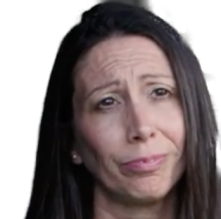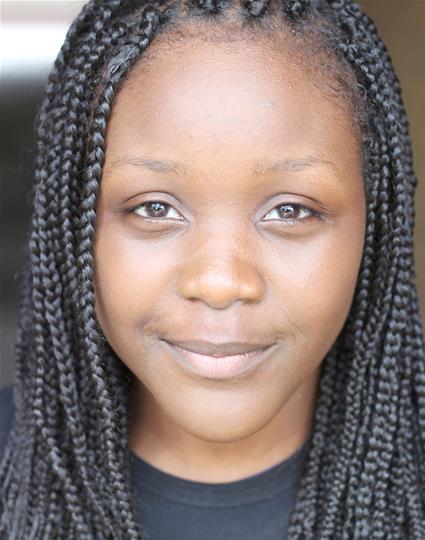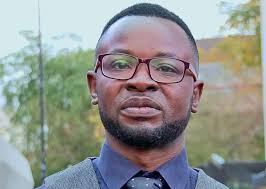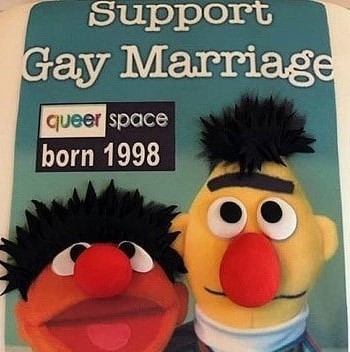
The Jesus Candidate considers twelve legal cases where anti-Christian discrimination was alleged. These cases were used to promote Religious Right claims that the secular state was persecuting believers and suppressing Christianity. This update covers some recent cases, similarly used to promote this political case.
Three cases of freedom to believe
Dr Mackereth left his training to become an assessor with the UK government's Department of Work and Pensions after learning that he had to use a client's self-assigned gender if this differed from birth gender. He claimed to have been dismissed, and that this was due to his belief, based on the book of Genesis, that no change of gender is possible. Maya Forstater also believes no change of gender is possible, basing this on scientific materialism. She says this is why a contract as a consultant was terminated. Courts in 2019 found that such denial of 'transgenderism' is a belief 'not worthy of respect in a democratic society.' Did this really mean, as claimed by some Christian commentators, that Christianity is no longer protected by the Equality Act or that a judge is like Monty Python? Or that, as the US Heritage Foundation said, that it signalled the arrival of 'Orwellian Thought Control'? Click here for the facts about these cases and my assessment of the issues raised.
Kristie Higgs was sacked from her job in an Academy after posting comments on Facebook about relationship education in schools. After dropping her action for unfair dismissal, she instead claimed, like Mackereth and Forstater, to be a victim of unlawful discrimination. After she lost that case, the news website Unherd saw this as an example of 'totalitarianism.' My analysis is here.
Felix Ngole
Felix Ngole was working as a teacher when he received a prophecy, through his wife, that he would be used by God to change government policy in the UK. Later he entered the two-year university Master’s course that leads to qualification as a social worker. Much of this course, especially in the second year, consists of supervised practice. Students understand that 'MA Social Work is a programme of professional training and that you are expected to behave in a professional manner in the University, on placement and in your personal life (including use of social media),' ensuring that 'behaviour does not damage public confidence' in social work and that social media posts are not offensive.
At the start of his second year, Mr Ngole joined in a discussion about same-sex marriage on the Facebook page of a secular US broadcaster. In a series of entries, he quoted the familiar passage from Leviticus concerning same-sex relations, warned that such relations were abominable to God, and added that the US constitution had been 'hi-jacked by the devil.' The university investigated his 'fitness to practice' - and found no readiness from Mr Ngole to consider whether his social media postings were appropriate for a professional social worker, and no indication that he might not do it again. He was removed from the course, though he was offered a chance to continue on a different course without the professional qualification. At this point Christian Concern 'miraculously' became involved and started action leading to judicial review of the fairness of the decision.
The first court reviewing the case found for Sheffield University. However this was reversed on appeal. The appeal court found that 'the University's disciplinary proceedings were flawed' and 'got off on the wrong track' after 'both sides adopted extreme and polarised positions from the outset.' The university failed to make it clear that the problem lay in the language used and its potential to be misunderstood, to give guidance on how to give public expression to views, or to make it clear that holding such views was not a barrier to progressing in social work. Felix Ngole's record showed that, as he insisted was the case, he did not discriminate against clients because of their sexuality. The university became entrenched in a hostile position and missed the opportunity offered to find compromise. The court ordered the university to re-run the Fitness to Practice hearing with different personnel.
Seyi Omooba
Seyi Omooba is a young actor, singer and dancer good enough, in an audition, to have won the role of Celie in a regional stage production of The Color Purple. Immediately another actor, Aaron Lee Lambert, outed her Facebook post revealing her to hold a conservative Christian view on the LGTBQ+ question. Did she still defend these? She refused to retract. Quickly she was dropped from the production and then from her talent agency. She rejected financial compensation.
The part was offered in March 2019. The Facebook post, from 2014, attacked Christians who are so ‘lukewarm’ that they are ready to ‘twist the word of God’ in their understanding of a clear instruction Ms Omooba reads in the book of Corinthians. She says that homosexuality is legal ‘in this land’ but this does not ‘mean its right’ (sic - see note) . She asserts that she follows God in being loving towards her gay neighbours and co-workers.
Ms Omooba’s father, Pastor Ade Omooba, is one of two Directors of Christian Concern, which has taken up her case through its partner the Christian Legal Centre. A hearing before an employment tribunal was due to be heard in April 2020, but postponed due to the Covid emergency.
Ms Omooba says in interviews that she does not consider the character Celie to be a lesbian and did not intend to perform the part as such – surprisingly since Celie’s attraction to a woman, and their sexual relationship, appear to be central to the plot (the thoughts of the director on this point are not on record). However, the whole story is awash with sexual violence and religious confusion, and Celie’s sexuality hardly seems the biggest problem for a Christian performer in the show.
I cannot comment here on the legal case that the actor may have against the theatre and her agency.
But I would like to offer a thought on the wider context. Her views, as belatedly published, may be repugnant to a large part of the potential audience for her act, and this may be a factor in the decision to drop her from this show. But it's also reported that she is a spectacular actor, singer and dancer whose skill places her among the best of her peers. Should audiences be ready to enjoy her work regardless of the workings of her mind? The law-courts aren't the best place to argue this, regardless of the details of the proceedings.
I turn to Teresa Bejan and Mere Civility (see note) . She takes the term from Roger Williams, the Puritan kicked out of Massachusetts for advocating religious freedom (and the legal rights of the American native peoples.) Roger Williams founded Rhode Island as a ‘democracy’ with equal freedom for all to religious expression, and, in London in 1644, published The Bloudy Tenent of Persecution for Cause of Conscience – a book that energised English opinion in favour of religious freedom and put into public discourse the ‘wall of separation’ between church and state. 'Mere Civility' is about the terms on which a religiously diverse society establishes minimal moral rules for mutual respect and exchange. Dr Bejan (a young American political theorist at Oxford) suggests we look to Roger Williams to answer the question: How is a tolerant society to tolerate the intolerant?
The Omooba case comes down to two rival models of what it means to be a tolerant society - is it one that insists on a particular version of tolerance, and refuses equal opportunity to those who do not share it? Or is one, as Teresa Bejan suggests, one that tolerates all, even those it considers to be intolerant?
Notes
Many countries, including many Christian-influenced countries in Africa, maintain laws punishing homosexual acts. Ms Omooba’s father is British of Nigerian origin and continues to maintain connections in Africa. Andrea Williams, the other CC Director and its CEO, has appeared on international platforms defending laws penalising gay sex (see The Jesus Candidate, p.59).
Mere Civility by Teresa Bejan was published in hardback in 2017 and in paperback in November 2019 (Harvard UP). There is a video on https://www.rwu.edu/library/news/case-you-missed-it-dr-teresa-bejan.
Richard Page
Richard Page was a magistrate and, separately, a board member of the National Health Service (NHS) body responsible for mental health services across Kent. In 2014 he was one of three magistrates considering a case of adoption. He opposed it on the grounds that adoption is never acceptable unless by a heterosexual couple. The other magistrates, and the clerk of the court, complained. Mr Page was issued with a reprimand by the Judicial Conduct Investigations Office, saying he should have recused himself if he could not consider a matter only on the basis of the evidence and the law. He then gave an interview about the matter to a national newspaper, which also linked him to the NHS. The chair of the Kent and Medway NHS and Social Care Partnership NHS Trust – Mr Ling - asked to meet his fellow board member about the implications for the Trust, but first Mr Page appeared in a Kent radio phone-in discussing his views on adoption and same-sex relationships.
Mr Page promised Mr Ling that in future he would at least notify the Trust before further media appearances, but he did not keep this promise and went on to appear in high-profile broadcasts. His media activity led to his removal from the magistracy. Mr Ling decided to ask a Termination of Appointments Panel to rule on whether Mr Page should continue to be a board member, considering the failure either to keep the trust informed of media work or to consider the impact of publicity on the board’s relations with staff and patients. Ruling against Mr Page, the panel said the “of particular importance” was Mr Page’s “inability or unwillingness to distinguish between his personal views and what it was appropriate as a non-executive director with a high profile” to “say to the media.” An employment tribunal rejected his claim to be a victim of discrimination and harassment. It found he lost his position not because of his religious views, but “because he accepted invitations to appear in the press and on national television without informing the Trust when he had been expressly told to inform them.” Mr Page, supported by Christian Concern, says this is a false distinction: a right to hold a religious view necessarily brings entitlement to express that view in public, regardless of the wishes of an employer.
The findings of the tribunal were upheld in a 2019 appeal.
Ashers Bakery
On 10th October 2018 the UK Supreme Court allowed an appeal by Ashers bakery in the 'gay cake' case. In the words of the Court's press release: nothing in discrimination law 'imposes civil liability on the appellants for the refusal to express a political opinion contrary to their religious beliefs.' As I said my original comment on the case, the bakers were not discriminating against a customer because of sexual orientation. They thought they had a right not to provide their services to a political cause with which they disagreed. The Supreme Court finding did not re-legalise any form of discrimination. It was, in my view, a victory for political freedom.
© James Paul Lusk 2020. Contact: email bookATthejcan.org or telephone (44)(0)7977517334.



 Felix Ngole: victim of 'flawed proceedings'
Felix Ngole: victim of 'flawed proceedings'
